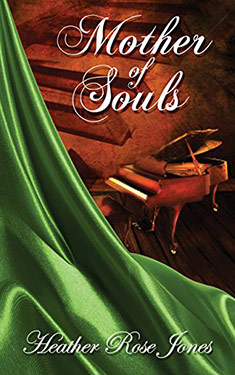Heather Rose
Jones
Completed 8/2/2020,
Reviewed 8/2/2020
4 stars
It took me nearly a week to read this book, not because it was long, though it was longer than the first two. It’s because it was so comfortable being in this world that Heather Rose Jones created. This book introduced two new characters, in addition to the four main characters in the previous books, Daughter of Mystery and Mystic Marriage. The book was much more complex with more plotlines, but I really enjoyed almost all of them. The one plotline I didn’t really care for was the one that had to do with some of the politics of the world. The others though were just wonderful. This book won the Gaylactic Spectrum Award in 2017.
In this book, Margerit tries to open an academy for women that teaches the type of magic she does, as well as other academic areas, because the local university barely tolerates women and doesn’t offer them degrees. Antuniet wants to have a child to carry on the family name and inherit her title if she earns it back, but she wants to do it through alchemy, creating a homunculus. Luzie, a new character, composes music that generates the same type of magical energy that Margerit works in. Her dream is to create an opera. Finally, Serafina, a Rome native whose parents came from Ethiopia, comes to Alpennia because she can see the magic more vividly than anyone she knows, but cannot generate the magic herself.
There are a lot of plots, but they go together well. Jones weaves the storylines in and out of each other nearly seamlessly. I felt she did it much more fluidly than she did in the previous book. The main plotline is the one with Luzie and Serafina, and that was the one I was most interested in. When Luzie and Serafina meet, they find they can work together. Serafina can see the energy coming from Luzie’s music, helping Luzie in her composing to create amazing music. Together, they compose enough music to make an opera. This collaboration also comes into play when it is found that sorcery is being used to block the pass though which people enter the country. It’s blocked with snow from a continuous winter, which doesn’t permit the snow to melt, causing a drought in the country. There’s a lot going on, but it all comes together as a pretty magnificent whole.
Serafina and Luzie really shine as the new characters. Jones noted that her inspiration for Serafina was when he posed the question, “Where were the black people in Europe at this time?” It prompted a lot of research on her part and this is the character she created in response to that. Serafina is married to Paolo who tried to teach her how to do the magic that she so vividly sees. Their marriage was based on this more than love, though Paolo expected her to be a good wife. Because of his job, he is in Paris for three years. That’s what prompts Serafina to go to Alpennia in the first place, seeking better council on her visual gift and lack of creative gift. Luzie is a widow with two children who are away at school. She’s kind of Serafina’s opposite. She can create magical music but cannot see the magic she’s created. When the two come together, it’s wondrous. It also eventually leads to a romance that has many difficulties. Like all the romance in this series, I thought it was done well. It takes into consideration both the women’s existing relationship status and the sexual mores of the day. As a reminder, this book takes place in the early 1800s.
I also appreciated the plotline of the development of the Margerit’s academy. It’s not an easy chore, and not all of her choices are the best. But you cheer for her because women and education do not go so easily hand in hand in this day and age.
Though this book has standalone stories, it is dependent on the previous books for the other plots and the development of the existing characters. There are no real cliffhangers, which I appreciate, though some of the plots clearly continue in the fourth book.
I give this book four stars out of five. It’s much better than the second book, but I still like the first book the best. Reading this book, especially so close to the previous ones, felt like cozying in a comfortable chair in a room filled with your favorite lesbian friends. I’ve read a lot of really good lesbian science fiction and fantasy literature over the past four years, as well as some not so good. This series ranks up there as one of my favorites.

No comments:
Post a Comment